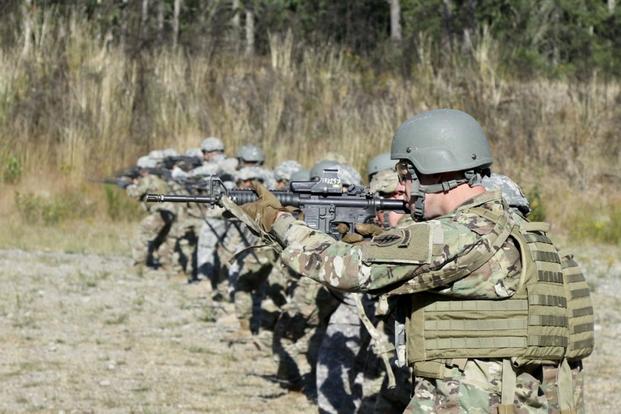U.S. Special Operations Command is facing a recruiting challenge that may force it to be more choosy about the missions it takes on in the future, a senior Defense Department official said today.
"We have some recruiting challenges, and I think the trajectory is not good over the next few years," Mark Mitchell, principal deputy assistant Secretary of Defense for Special Operations and Low Intensity Conflict, said today.
"Around 30 percent of American high schoolers meet the requirements to join service, and even fewer of them can meet the demands of the special operations community."
Mitchell shared his concern with an audience at the National Defense Industrial Association 29th Annual Special Operations/Low Intensity Conflict Symposium.
For example, Mitchell said, the current requirement for Army Special Forces is 685 officers and enlisted soldiers.
"I think we are going to hit 470 this year; we have to find some new ways to reach into some untapped pools," Mitchell said. "The barrier to SOF entry is high and will remain high. We don't intend to drop the standards, and we are committed to that, but we really need to look at attacking those other pools."
To help offset the recruiting challenge, Mitchell said SOCOM need to "ruthlessly prioritize where we are investing our SOF resources."
"We are currently meeting all of our requirements overseas, but the ops-temp is pretty high," Mitchell said.
Mitchell hailed the conventional Army's recent decision to stand up new Security Force Assistance Brigades, units of highly trained officers and soldiers designed to take over the "advise-and-assist" mission of training foreign troops in conventional infantry operations.
In the past, this high-demand mission has placed tremendous stress on special operations forces such as Army Special Forces units, which are traditionally designed to raise foreign armies to fight as coalition partners.
"We welcome this, because we see it as an opportunity to preserve our special operations capabilities for those missions that require it," Mitchell said.
It's one example of ways SOF may have to reevaluate strategy and reassess priorities in light of current challenges.
"I'm sure some of the SF guys can tell you, we go year after year to the same country, doing the same training for different groups of guys, buying them equipment," Mitchell said, "And then coming back the next year and finding that all the guys we trained are gone, the equipment is broken, and we really can't get them to be an effective partner."
Perhaps, Mitchell said, it is time for the senior leadership to reevaluate some of these partnerships.
"What role do we want this country, this partner to play in a competition, short of armed or in an actual armed conflict," he said. "And if they are not willing and able to play an active role in one of those ... then we need to look elsewhere in investing our SOF personnel."
Matthew Cox can be reached at matthew.cox@military.com.










